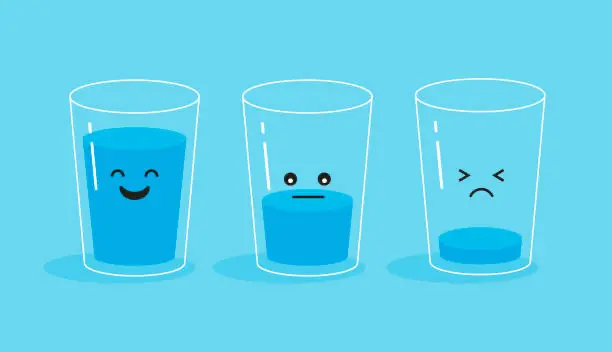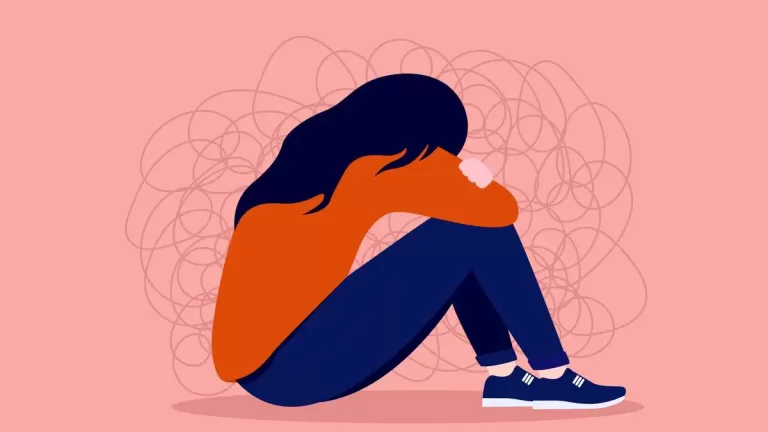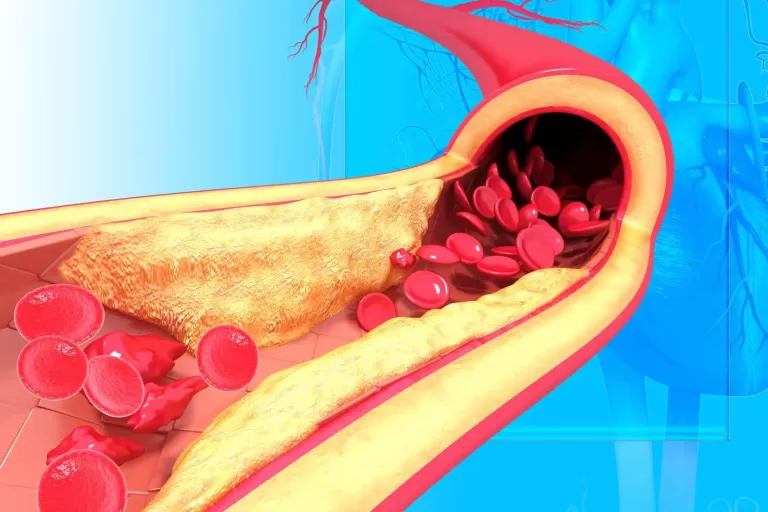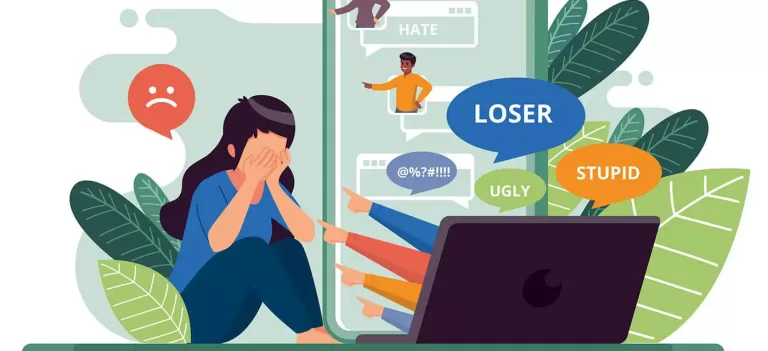ADHD stands for attention deficit hyperactivity disorder, a condition that affects people’s behaviour. People with ADHD can have problems with inattention, hyperactivity, and impulsiveness. The symptoms of ADHD can vary depending upon age and type of the condition.
Common symptoms of ADHD:
- Having a short attention span and being easily distracted
- Making careless mistakes or forgetting things
- Being unable to stick to tasks or follow instructions
- Being restless, fidgety, or unable to sit still
- Acting without thinking or interrupting others
- Having trouble with time management or organisation
- Having low self-esteem or mood swings.
ADHD can cause difficulties in various aspects of life, such as school, work, relationships, and health. ADHD can also be associated with other conditions, such as anxiety, depression, learning disabilities, or sleep problems.
Sources:
Attention deficit hyperactivity disorder (ADHD) – Symptoms – NHS.
Attention deficit hyperactivity disorder (ADHD) in children – Mayoclinic.
What causes ADHD?
The exact cause of ADHD is not fully understood, but it is thought to be a combination of genetic, environmental, and developmental factors.
Some possible causes of ADHD are:
- Genetics: ADHD tends to run in families and studies show that genes may play a role¹⁵. There may be differences in the brain structure and function of people with ADHD compared to those without the condition.
- Environment: Certain environmental factors such as exposure to lead, tobacco, alcohol, or drugs during pregnancy or childhood may increase the risk of ADHD.
- Development: Problems with the central nervous system at certain times of development, such as being born prematurely or with a low birthweight, may also contribute to ADHD.
How to support someone with ADHD
Supporting someone with ADHD can be challenging, but also rewarding. The best way to help someone with ADHD is to understand their condition and accept their strengths and weaknesses.
Some general tips to support someone with ADHD are:
- Plan: Help them create a structured and predictable routine for their daily activities. Break down tasks into manageable steps and use reminders or checklists.
- Praise: Recognize and appreciate their efforts and achievements. Give specific and positive feedback for good behaviour or performance.
- Communicate: Be clear, concise, and direct when giving instructions or feedback. Repeat or rephrase if necessary. Listen actively and empathetically to their concerns or frustrations.
- Intervene: Watch for signs of stress, boredom, or overstimulation and help them calm down or distract them from the situation. Offer alternatives or solutions if they encounter difficulties.
- Encourage: Help them find activities or hobbies that interest them and suit their abilities. Support their social skills and relationships with others. Help them cope with negative emotions or low self-esteem.
Common misconceptions about ADHD
ADHD is a common and complex condition that affects people’s behaviour, attention, and learning. However, there are many myths and misconceptions that can lead to misunderstanding and stigma. Here are some of the most common ones:
- ADHD is not a real medical condition: This is false. ADHD is a well-recognized and researched condition that has been shown to have biological and genetic causes¹². Brain imaging studies have revealed differences in the brain structure and function of people with ADHD compared to those without it¹³.
- People with ADHD just need to try harder: This is also false. ADHD is not a problem of motivation or effort. It is a problem of executive functioning, which are the cognitive skills that help us plan, organize, focus, and control impulses¹². People with ADHD often try very hard to overcome their challenges, but they need appropriate support and strategies to do so.
- People with ADHD can’t ever focus: This is partly true and partly false. People with ADHD usually have trouble focusing on tasks or activities that they find boring, difficult, or irrelevant. However, they can also experience hyperfocus, which is a state of intense concentration on something that interests them or stimulates them¹². Hyperfocus can be helpful or harmful depending on the situation.
- All kids with ADHD are hyperactive: This is false. There are three types of ADHD: predominantly inattentive, predominantly hyperactive/impulsive, and combined¹². Not all kids with ADHD have hyperactivity as a symptom, and some may appear quiet or daydreamy. Hyperactivity also tends to decrease with age, while inattention may persist into adulthood¹².
- Only boys have ADHD: This is false. Both boys and girls can have ADHD, but boys are more likely to be diagnosed than girls¹². This may be because girls tend to have more inattentive symptoms than hyperactive/impulsive symptoms, which are less noticeable or disruptive in school or at home¹². Girls may also be more likely to internalize their difficulties or compensate for their symptoms by working harder or seeking help from others¹².
Sources:
9 Common Misconceptions about ADHD – The Grace Space.
8 Common Myths About ADHD | Understood.
Myths, Misconceptions, and Stereotypes about ADHD – Psych Central.
4 Common ADHD Misconceptions That Everyone Needs To Stop Believing.
Common myths about ADHD – from an Expert with lived experience.
Common Myths And Misconceptions About ADHD You Should know – The Recovery Village.
ADHD in Adults
ADHD is a condition that affects people’s behaviour, attention, and learning. It can cause significant problems in various aspects of life, such as work, relationships, and health.
Common symptoms of ADHD in Adults are:
- Lack of focus: Having trouble paying attention to details, following instructions, or completing tasks. Being easily distracted by irrelevant stimuli or switching from one activity to another without finishing.
- Poor time management skills: Having difficulty planning, prioritizing, or organizing tasks. Being late, missing deadlines, or forgetting appointments. Procrastinating or rushing through work.
- Disorganization: Having a messy or cluttered workspace or home. Losing or misplacing things frequently. Struggling to keep track of bills, paperwork, or other responsibilities.
- Impulsivity: Acting without thinking or considering the consequences. Interrupting others, blurting out comments, or making inappropriate remarks. Taking risks or making hasty decisions.
- Restlessness and anxiety: Feeling restless, fidgety, or bored easily. Having trouble sitting still or relaxing. Feeling nervous, tense, or stressed.
- Fatigue: Feeling tired, sluggish, or drained. Having difficulty staying awake or alert during the day. Having trouble falling asleep or staying asleep at night.
- Poor self-image: Having low self-esteem or confidence. Feeling inadequate, incompetent, or worthless. Being overly critical of oneself or others.
- Relationship issues: Having difficulty communicating, listening, or compromising with others. Being argumentative, defensive, or insensitive. Having trouble maintaining friendships, partnerships, or family ties.
Sources:
Attention deficit hyperactivity disorder (ADHD) – NHS.
Adult attention-deficit/hyperactivity disorder (ADHD) – Mayo Clinic.
18 Symptoms That Could Indicate Adult ADHD – Cleveland Clinic.
Common treatments for ADHD in adults
ADHD is a condition that can be treated using various approaches, depending on the individual’s needs and preferences. Some common treatments for ADHD in adults are:
- Medication: There are several types of medication that can help reduce the symptoms of ADHD, such as inattention, hyperactivity, and impulsivity. These include stimulants (such as methylphenidate, lisdexamfetamine, and dexamfetamine), non-stimulants (such as atomoxetine and guanfacine), and antidepressants (such as bupropion). Medication can help improve concentration, focus, mood, and behaviour. However, medication may also have side effects, such as loss of appetite, insomnia, headache, anxiety, or increased blood pressure. Medication should be prescribed and monitored by a specialist, such as a psychiatrist or a GP.
- Psychotherapy: Psychotherapy is a type of talking therapy that can help people with ADHD understand their condition, cope with their emotions, and change their unhelpful thinking patterns. One of the most effective forms of psychotherapy for ADHD is cognitive behavioural therapy (CBT), which teaches people how to identify and challenge negative thoughts, manage stress, and improve their self-esteem and relationships. Psychotherapy can be done individually or in groups, with a therapist or a coach.
- Education: Education is an important part of treatment for ADHD, as it can help people with ADHD learn more about their condition, its causes, its effects, and its management. Education can also help people with ADHD develop skills and strategies to overcome their challenges, such as time management, organisation, planning, problem-solving, and self-regulation. Education can be provided by various sources, such as books, websites, podcasts, courses, workshops, or support groups.
- Lifestyle changes: Lifestyle changes can also help people with ADHD improve their symptoms and well-being. These include getting enough sleep, eating a balanced diet, exercising regularly, avoiding alcohol and drugs, practising relaxation techniques, and seeking social support. Lifestyle changes can complement other treatments or be used as self-help strategies.
How to find a specialist for ADHD treatment
To find a specialist for ADHD treatment, you have several options. You can:
- Ask your GP for a referral: Your GP may be able to refer you to a specialist who can diagnose and treat ADHD, such as a psychiatrist, a paediatrician, or a psychologist. Your GP may also be able to monitor your treatment and check for any side effects or problems.
- Contact your health care plan: If you have a health care plan, you may be able to find a list of specialists who are familiar with ADHD and are covered by your plan on their website or by calling them. This can help you save money and time by choosing a specialist who is in your network.
- Use a referral service or an online search tool: There are various services and websites that can help you find a specialist for ADHD treatment in your area. For example, you can use the CHADD Professional Directory, the Psychology Today Therapist Finder, or the ADDitude ADHD Specialist Directory. These tools can help you filter your search by location, specialty, insurance, and other criteria.
- Ask for recommendations: You can also ask for recommendations from people who have experience with ADHD treatment, such as your friends, family members, colleagues, teachers, or support groups. They may be able to share their personal stories and opinions about different specialists and help you find someone who suits your needs and preferences.
Sources:
Attention deficit hyperactivity disorder (ADHD) – Diagnosis – NHS.
Tips for Finding an ADHD Specialist – CHADD.
Who Can Diagnose ADHD? – Verywell Mind.
How to Find an ADHD Specialist – Verywell Mind.
Popular ADHD Books
There are many books that can help you learn more about ADHD and how to manage it. Some of the popular ADHD books are:
- Driven to Distraction: Recognizing and Coping with Attention Deficit Disorder by Edward M. Hallowell and John J. Ratey: This is a classic book that provides a comprehensive overview of ADHD, its causes, symptoms, diagnosis, and treatment. It also offers practical advice and strategies for coping with ADHD in various aspects of life, such as work, relationships, and self-esteem. Buy on AMAZON [affiliate link]
- The Mindfulness Prescription for Adult ADHD: An 8-Step Program for Strengthening Attention, Managing Emotions, and Achieving Your Goals by Lidia Zylowska: This is a book that teaches you how to use mindfulness techniques to improve your attention, focus, and emotional regulation. It also helps you set and achieve realistic goals, overcome procrastination, and deal with stress. Buy on AMAZON [affiliate link]
- Women with Attention Deficit Disorder: Embrace Your Differences and Transform Your Life by Sari Solden: This is a book that addresses the unique challenges and needs of women with ADHD. It explores how ADHD affects women’s self-image, relationships, career, and mental health. It also provides guidance and support for women to embrace their strengths and overcome their difficulties. Buy on AMAZON [affiliate link]
- Taking Charge of Adult ADHD by Russell A. Barkley: This is a book that helps you understand the science behind ADHD and how it affects your brain and behaviour. It also provides a step-by-step plan for managing your symptoms, improving your skills, and changing your habits. View Audio Book on AMAZON [affiliate link]
- HyperHealing: The Empowered Parent’s Complete Guide to Raising a Healthy Child with ADHD Symptoms by Avigail Gimpel M.S.: This is a book that shares the author’s personal and professional experience of raising children with ADHD. It offers holistic solutions for improving your child’s health, behaviour, learning, and happiness. Buy on AMAZON [affiliate link]
Popular ADHD support websites
- ADDitude: A comprehensive online resource for people with ADHD and their families. It offers articles, podcasts, webinars, forums, and more.
- CHADD: The National Resource Center on ADHD, a program of Children and Adults with Attention-Deficit/Hyperactivity Disorder (CHADD). It provides information, support, and advocacy for people with ADHD and related disorders.
- ADHD Foundation: A UK-based charity that supports people with ADHD and neurodiversity. It offers training, coaching, counseling, and events.
- ADDA: The Attention Deficit Disorder Association, a nonprofit organization that empowers adults with ADHD to live better lives. It provides online courses, webinars, support groups, and newsletters.
- Understood: A website that helps parents and educators understand and support children with learning and thinking differences, including ADHD. It features expert advice, personalized resources, and community stories.








Understanding ADHD